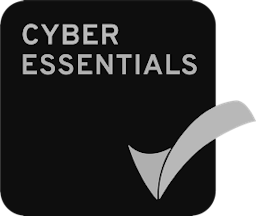Apr 12, 2023
Embracing ChatGPT in Education: A New Era of Teaching and Learning
As AI technology advances, educators are finding innovative ways to incorporate chatbots like ChatGPT into their classrooms. In this blog post, we explore how teachers are reshaping their roles, using AI to promote media literacy, encourage interactivity, and provide personalised learning experiences. Adapted from an original article by Will Douglas Heaven, we also address the challenges and concerns that come with integrating this technology into education.
The evolving role of teachers in the age of AI
As chatbots become more sophisticated, teachers are transforming their roles from gatekeepers of information to facilitators. They now help students navigate the abundance of information available online and from chatbots, teaching them how to identify trustworthy sources and detect bias.
Capitalising on AI imperfections for learning opportunities
Educators are using the shortcomings of large language models like ChatGPT as learning opportunities, focusing on media literacy. Students are asked to identify flaws in the generated text, which can lead to productive discussions about bias and misinformation. For instance, when ChatGPT produced a US-centric essay about the history of the printing press, a teacher used the lack of information about European and Chinese origins to spark a conversation about bias.
Interactive learning and support for diverse learners
AI technology like ChatGPT can bring more interactivity to the classroom, encouraging critical thinking, creativity, and role-playing. Chatbots can act as debate opponents, generating counterarguments to help students identify weak points in their own reasoning. For students whose first language isn't English or those with specific learning needs, chatbots can provide tailored support by drafting text, paraphrasing documents, or generating visual explanations.
Personalised teaching materials for all
The potential of AI extends to creating personalised learning experiences for students. Ed-tech companies like Quizlet are already utilising ChatGPT to tailor study materials based on each student's needs and learning preferences. In the future, textbooks may even be bundled with chatbots trained on their contents, providing personalised quizzes and coaching.
- Adaptive learning pathways: AI-driven systems can track students' progress and adapt the learning content based on their individual strengths, weaknesses, and learning styles. By continuously monitoring performance, the AI can modify the curriculum to ensure each student receives the optimal mix of content and activities tailored to their unique needs.
- Customised feedback: AI can provide personalised feedback on students' work, pinpointing areas for improvement and suggesting targeted resources to help them address their weaknesses. This enables students to focus on the specific areas they need to work on, rather than following a one-size-fits-all approach.
- Differentiated content: AI can automatically generate content at different levels of complexity to cater to students with varying reading levels, comprehension skills, and prior knowledge. This ensures that all students can engage with the material and progress at their own pace.
- Learning preference accommodation: AI can identify students' preferred learning styles (visual, auditory, kinesthetic, etc.) and deliver content in a format that best suits them. For instance, it can create multimedia presentations, audio explanations, or interactive simulations based on the student's learning preferences.
- Personalised learning schedules: AI can help create customised learning schedules for students, taking into account their individual availability, goals, and optimal learning times. This helps students make the most of their study time and achieve better results.
- Intelligent tutoring systems: AI-powered tutoring systems can offer personalised guidance to students in real-time, identifying misconceptions or gaps in understanding and providing targeted support. These systems can also engage in natural language conversations with students, simulating the experience of working with a human tutor.
- Gamification and motivation: AI can personalise gamified learning experiences, adjusting challenges, rewards, and feedback to maintain an optimal level of engagement and motivation for each student. This can help students stay engaged in the learning process and enjoy a more enjoyable and rewarding educational experience.
Challenges and concerns
Despite the potential benefits, integrating ChatGPT into education presents challenges. Students may struggle to use the AI output as a starting point rather than a crutch, and cheating becomes easier than ever. Addressing these concerns requires ongoing support for educators, possibly including government assistance in the form of funding, training, and regulation.
The integration of AI technology like ChatGPT into education marks a new beginning for teaching and learning. As educators adapt their roles and leverage chatbots to foster media literacy, interactivity, and personalised learning experiences, they must also navigate the challenges and concerns that arise. With appropriate support and an open-minded approach, this new era holds great promise for the future of education.
Interested in how AI can benefit your company?
Our proof of concept service is not just about demonstrating what's possible, it's about establishing what's practical, profitable and tailored to your business needs.


































